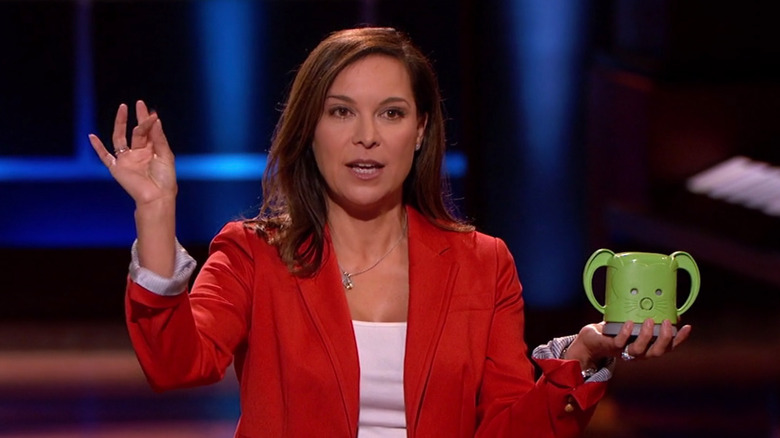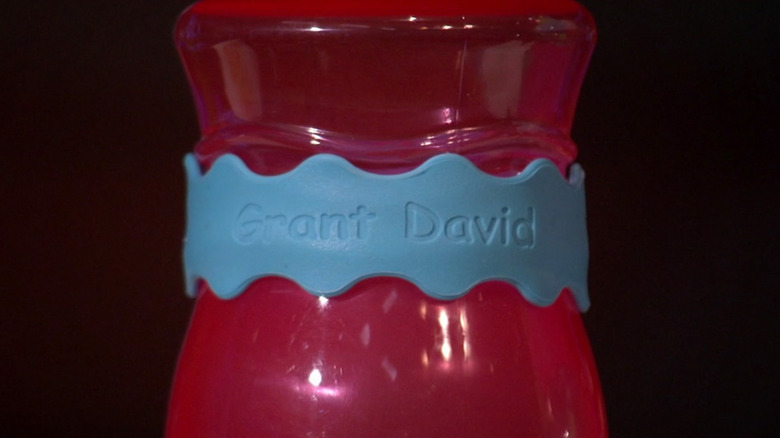Whatever Happened To InchBug After Shark Tank?
We may receive a commission on purchases made from links.
During the 16 seasons (and counting) of "Shark Tank," plenty of would-be entrepreneurs have gone into the tank to pitch products that they hope will appeal to children and parents. We've seen LockerBones adjustable locker shelving, the PullyPalz pacifier modification that prevents pacifier droppage, or ShowNo Towels, the hands-free towel that allows children to change into and out of their bathing suits in public.
Brenda Lee Feldman of Austin, Texas attempted to follow in these products' footsteps when she went into the tank to pitch her company, InchBug, in April 2016, during the seventh season of "Shark Tank." During her pitch, she focused on InchBug's signature product: the MyDrinky adjustable juice box holder. The MyDrinky attempts to rectify a problem that many parents experience: when they give their children a juice box, their kids tend to squeeze said box and shoot juice everywhere. But as Feldman put it, "We're not a one-product company." Their other signature product is the Orbit Label, an adjustable plastic labeling system for children to use with their lunches and clothing at school–more on this below.
Feldman asked for $400,000 in exchange for 10% of InchBug. Even though the Orbit Labels were a much bigger seller than the MyDrinky, Feldman's plan was to leverage that $400,000 into a retail play for the MyDrinky. The sharks were unimpressed with this strategy, but did acknowledge that Orbit Labels are a winner. In the end, only Mr. Wonderful made an offer: he would put up the $400,000 in exchange for 5% of the company, but this was also contingent on a $1 royalty agreement for each item sold, until he recouped $1.2 million.
Feldman walked away without a deal, but was this the right call?
InchBug hit it big by focusing on what works
It's only fair to call Brenda Feldman's "Shark Tank" appearance a miscalculation. The Orbit Label was a much bigger seller than the MyDrinky, yet Feldman emphasized the MyDrinky in her pitch. Look at the numbers. At the time of her "Shark Tank" pitch, Feldman had sold $50,000 worth of the MyDrinky product. Meanwhile, she'd done $15 million in sales for the Orbit Label, and $2 million in the last year alone.
On the one hand, Feldman's strategy does make some sense: capitalize on the success of one product to grow your business. But as many of the sharks pointed out, this was an attempt to fix something that wasn't broken. The Orbit Label business was already thriving. After "Shark Tank," Orbit Labels clearly became the primary focus, but despite it disappearing for a time, fans of the MyDrinky can still purchase it in a variety of colors on the website or Amazon.
Today, InchBug offers a wide variety of customizable label products. Feldman sold the business along the way and Casey Slusher is now the owner and CEO. In addition to their plastic labels, they also offer sticker labels in a wide variety of designs and colors for adults and children. InchBug is a thriving business, even if "Shark Tank" didn't play the biggest role in that.

